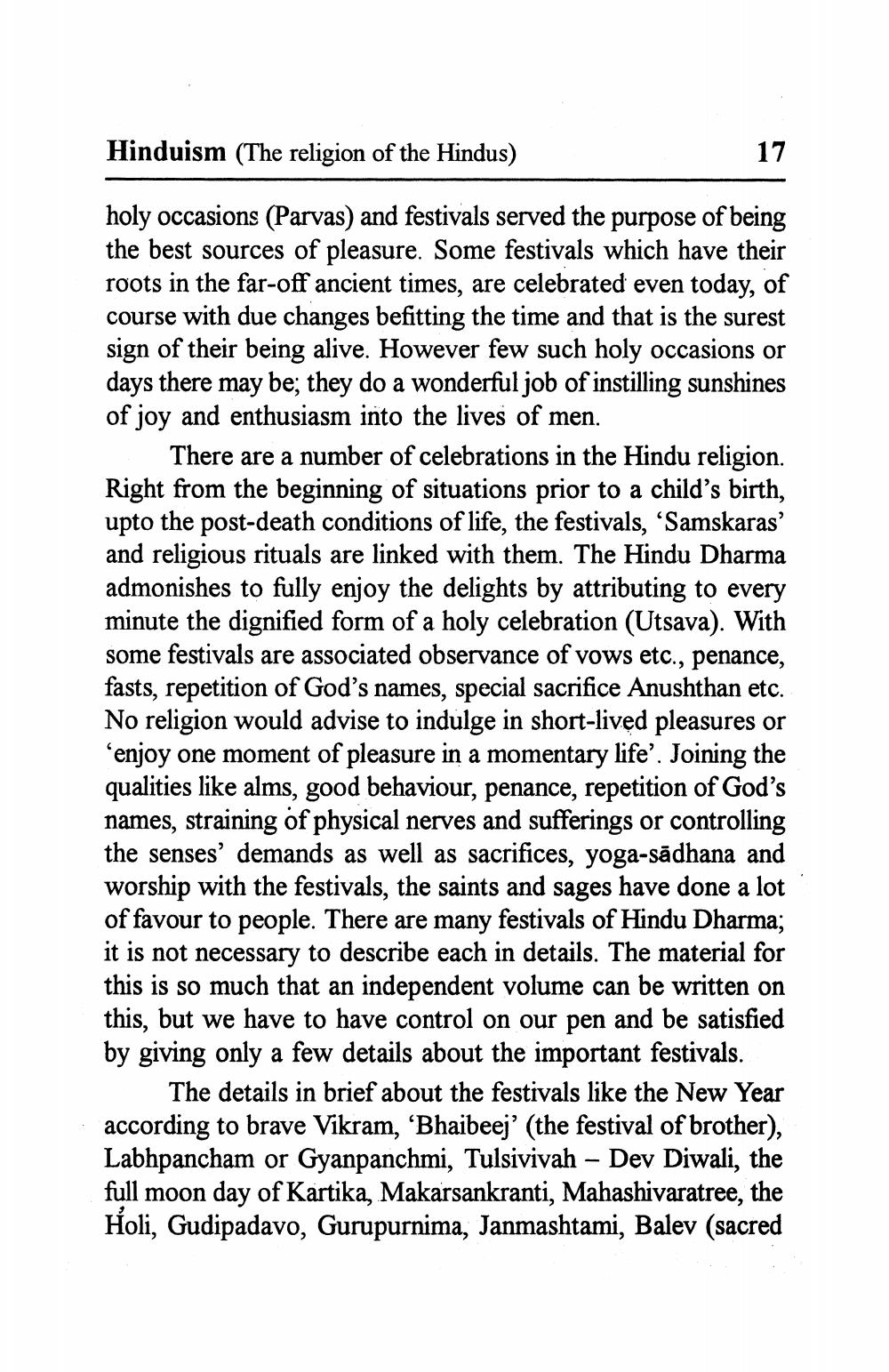________________
Hinduism (The religion of the Hindus)
holy occasions (Parvas) and festivals served the purpose of being the best sources of pleasure. Some festivals which have their roots in the far-off ancient times, are celebrated even today, of course with due changes befitting the time and that is the surest sign of their being alive. However few such holy occasions or days there may be; they do a wonderful job of instilling sunshines of joy and enthusiasm into the lives of men.
There are a number of celebrations in the Hindu religion. Right from the beginning of situations prior to a child's birth, upto the post-death conditions of life, the festivals, 'Samskaras' and religious rituals are linked with them. The Hindu Dharma admonishes to fully enjoy the delights by attributing to every minute the dignified form of a holy celebration (Utsava). With some festivals are associated observance of vows etc., penance, fasts, repetition of God's names, special sacrifice Anushthan etc. No religion would advise to indulge in short-lived pleasures or “enjoy one moment of pleasure in a momentary life'. Joining the qualities like alms, good behaviour, penance, repetition of God's names, straining of physical nerves and sufferings or controlling the senses' demands as well as sacrifices, yoga-sādhana and worship with the festivals, the saints and sages have done a lot of favour to people. There are many festivals of Hindu Dharma; it is not necessary to describe each in details. The material for this is so much that an independent volume can be written on this, but we have to have control on our pen and be satisfied by giving only a few details about the important festivals.
The details in brief about the festivals like the New Year according to brave Vikram, 'Bhaibeej' (the festival of brother), Labhpancham or Gyanpanchmi, Tulsivivah - Dev Diwali, the full moon day of Kartika, Makarsankranti, Mahashivaratree, the Holi, Gudipadavo, Gurupurnima, Janmashtami, Balev (sacred




